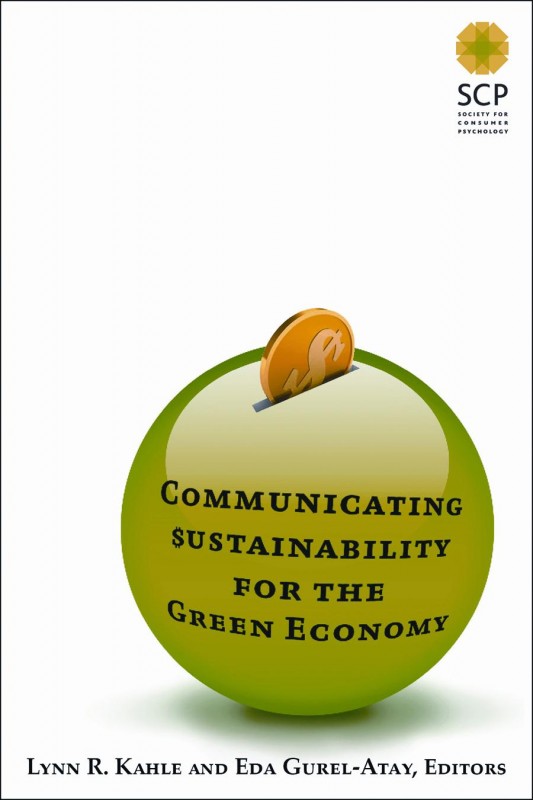Puget Sound Professor Eda Gurel-Atay co-edits
“Communicating Sustainability for the Green Economy”
TACOMA, Wash. – How do you get people to break the “habit” of enjoying a lifestyle that slowly sabotages the planet we live on? Such as drinking from plastic bottles? Or driving a gas-guzzler?
This crucial question is asked not only by environmentalists—but by corporate marketers, who would happily supply all the green goods and services we can consume, if we would only promise to buy them.
A new book, co-edited by professors at University of Puget Sound and University of Oregon, opens the hidden rule book on human behavior, points out the major barriers to changing consumer behavior, and reveals ways around the hurdles.
Communicating Sustainability for the Green Economy (M.E. Sharpe, Sept. 2013), a comprehensive tool for promoting environmental sustainability, includes contributions from more than a dozen experts. It is edited by Eda Gurel-Atay, assistant professor in Puget Sound’s School of Business and Leadership; and Lynn Kahle, head of the marketing department at University of Oregon’s Lundquist College of Business.
“The book is a captivating study of the dynamic reasons behind our perceptions, emotions, cognitions, and behaviors,” wrote reviewer Ulrich Orth, editor of International Journal of Wine Business Research.“The authors’ lens of analysis equips scholars, marketing professionals, and policy makers with useful background information, as well as detailed case knowledge to better understand why consumers feel, think, and behave the way they do when sustainability is at stake.”
To date many businesses across the globe have made great strides in marketing sustainability—a field that some believe is the next major area of world economic growth. But consumers overall have failed to follow suit. Communicating Sustainability for the Green Economy suggests marketing tactics to overcome the consumer resistance to “buying green” caused by factors such as:
- The cost and effort involved
- Lack of awareness
- Persistent everyday routines
- Lack of access to products and services
- Personal histories of inordinate consumption
Gurel-Atay and Kahle point out in their introduction that consumers often think that the reason they buy one good, rather than another, is because some characteristic of that product leads to a positive consequence. But ultimately, the editors write, “If you continue to ask the consumer questions about why the consequence was important, the response usually links to some core value the consumer holds.”
The logical response by marketers—and this certainly applies to green consumption—is to link a product to a core value that that particular consumer holds. Take, for example, the homeowner who opts to buy solar energy panels. The values held high by such a consumer might include self-respect, security, and warm relationships with others of a like mind.
Communicating Sustainability for the Green Economy details how this and other marketing issues can be effectively addressed. Topics in the book include advertising strategy as it relates to: sustainability, corporate social responsibility, “greenwashing,” personal values, persuasion, social media, and public policy.
Eda Gurel-Atay is assistant professor in the School of Business and Leadership at University of Puget Sound. Her research interests center on: the impact of social values on various consumer behaviors; lifestyles and psychographics; celebrity endorsements and advertising effectiveness; and materialism. The shopping process and its impact on retailer evaluation, and the shopping well-being of consumers are other topics she follows. Gurel-Atay is also interested in cross-cultural differences in value endorsement, including materialism. She conducts research in various countries.
Press photos of the book cover are available upon request.
Tweet this: How to get us to ‘Buy Green’: new book, editors @Eda_GA @univpugetsound & Lynn Kahle @Univ_Of_Oregon http://bit.ly/J2jq2E
Click to Tweet above message: http://clicktotweet.com/gn9aE
Follow us on Twitter! www.twitter.com/univpugetsound

